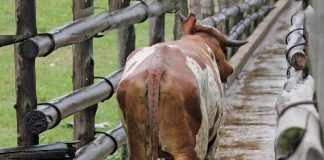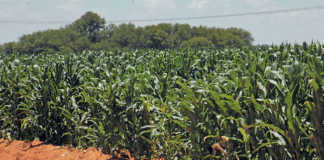Exxaro Resources’ coal mining operations at their Glisa colliery, near Belfast, allegedly destroyed the graves of former farmworkers, despite promises to relatives of the deceased that graves would be cared for.
“In 2000 the manager told us to fence the graves. He said the mine wouldn’t come near the graves,” said Maria Dube, one of the relatives.
Glisa was scheduled for closure in 2006, but new owners Exxaro decided to extend the life of the mine by mining beneath the burial ground.
“The new company and new manager told us the area is the property of the mine, and they were going to mine there,” said Dube. “They said they would fix the graves when they were finished mining.”
“The gravestones are destroyed,” said Sanna Dube, whose parents and grandparents are buried at the site.
The Dubes claim mining activities have come within 7m of the graves, whereas Exxaro spokesperson Hilton Atkinson maintained a buffer of about 10m was left on two sides with a further 30m on two other sides to protect the Dube family graves.
A buffer zone of 50m between developmental activities and a fenced burial site is recommended, said Marike Fourie, an environmental scientist at Digby Wells and Associates. The National Heritage Resources Act provides for the protection of graves if it can be proven they’re 60 years or older.
“South Africa has laws to protect ancestral graves, but the gap between these and reality is another thing entirely – there are many, many abuses,” Fourie said.
Belfast cherry farmer Dr Koos Pretorius and chairperson of the Escarpment Environment Protection Group said abuse by Mpumalanga miners wasn’t uncommon. “In regard to the Onverdacht Colliery, we have a picture from their own documents of a burial ground with a dam next to it. Now the grave isn’t there any more, but there’s a mining dump. The miner denies a grave ever existed,” he said.
Food and Allied Workers Union (FAWU) general secretary Katishe Masimula said the union didn’t know the extent of the problem. However, Masimula said mining operations will bring revenue to rural areas. “If a grave or a farmworker needs to be relocated, based on a cost-benefit analysis, then we would support that,” he said.











